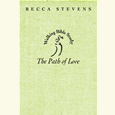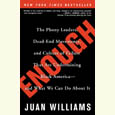You Are What You Cook
Michael Pollan talks with Chapter 16 about his groundbreaking new book, Cooked
FROM THE CHAPTER 16 ARCHIVE: This interview originally appeared on May 6, 2014.
***
According to Michael Pollan, what we do––or don’t do––in the kitchen says a lot about who we are. In Cooked: A Natural History of Transformation, Pollan apprentices himself to four culinary experts: a barbeque pit-master, a brazier, a baker, and a fermenter. By mastering their techniques—which he links to the four classical elements: fire, water, air, and earth––Pollan argues that we can wrest the kitchen away from Big Food—and that may be the single most important step we take toward reclaiming our food chain and our selves.
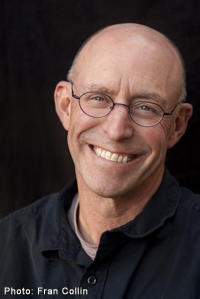 Anyone familiar with Pollan’s bestselling The Omnivore’s Dilemma can testify to the author’s attention to detail. With Cooked, Pollan focuses his obsession on the preparation of food. Through science experiments posing as recipes, Pollan argues that cooking is a form of intimacy that not only enhances our lives and the lives of our loved ones but also connects us to our past, to our environment, and to other cultures, both human and bacterial. In a recent telephone interview with Chapter 16, Pollan talked about Cooked, the cost of outsourcing food preparation, and the possibility that East Nashville might one day get a decent grocery store.
Anyone familiar with Pollan’s bestselling The Omnivore’s Dilemma can testify to the author’s attention to detail. With Cooked, Pollan focuses his obsession on the preparation of food. Through science experiments posing as recipes, Pollan argues that cooking is a form of intimacy that not only enhances our lives and the lives of our loved ones but also connects us to our past, to our environment, and to other cultures, both human and bacterial. In a recent telephone interview with Chapter 16, Pollan talked about Cooked, the cost of outsourcing food preparation, and the possibility that East Nashville might one day get a decent grocery store.
Chapter 16: In Cooked, you advocate for a cultural revival in which we literally remake ourselves through food preparation. Are there other parts of our culture that need reviving?
Michael Pollan: Food is part of it, but we do see a wider interest in reviving communities, local communities especially. Craft is becoming much more important—especially to young people, who are very interested in reviving handwork of various kinds and developing shorter supply chains and more local economic relationships. There’s a general feeling that consumerism and large corporations are infiltrating a little too close to home and really trying to get into every nook and cranny in our lives with information, material, and products that are very homogenous and not very interesting but are inescapable.
Civil society, especially in Eastern Europe, was always posing as the state, overweening and getting into everybody’s business, and here there’s a similar sense developing around the corporation—that you need a space free of that influence. It’s everywhere, from the classroom, where these corporations have tried to come with their marketing and their materials, to various aspects of everyday life. And so local food is part of a larger effort to carve out a free space where money isn’t everything, where quality counts, and where people can have direct contact.
That’s the larger context. I don’t know if it’s an alternative model, but it’s part of what’s going on. It really is a communitarian movement. The more you look at it, the more it’s not just about food—it’s not about what we’re putting in our bodies. That’s important to some people, but I always ask the audience, “How would you feel if McDonald’s went organic and grass fed?” And they’re like, “No, that’s not what I want to see!” Great. If you were purely interested in the environment or health, you’d have to celebrate that, but in fact they’re looking for an alternative to McDonald’s, something that has more character and is more local and distinctive.
Chapter 16: You argue for self-reliance in the face of a consumer culture with remarkably long supply lines. Is home cooking enough to derail a food culture that’s as specialized and politically connected as ours?
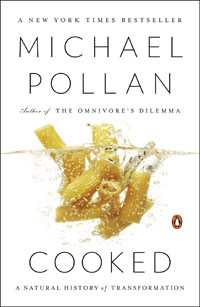 Pollan: Food is a great place to start, as is gardening. Those two activities are available to all of us. We have everything we need to start with both of those things. Not only do they have enormous value in and of themselves—because if you cook you’re going to end up with healthier food—but you’re also going to understand your food better. You’re probably going to shop differently, and you’re going to eat better, but it also is a kind of practice for another way of living where you’re simply less specialized and more sovereign; you’re autonomous. Whenever we learn that—Geez, I can do this myself; I can grow some of my own food; I can cook my own food––we feel less dependent, and that’s one of those lessons that can spread to other aspects of your life. So I think it’s actually very transformative, as routine and normal as it sounds.
Pollan: Food is a great place to start, as is gardening. Those two activities are available to all of us. We have everything we need to start with both of those things. Not only do they have enormous value in and of themselves—because if you cook you’re going to end up with healthier food—but you’re also going to understand your food better. You’re probably going to shop differently, and you’re going to eat better, but it also is a kind of practice for another way of living where you’re simply less specialized and more sovereign; you’re autonomous. Whenever we learn that—Geez, I can do this myself; I can grow some of my own food; I can cook my own food––we feel less dependent, and that’s one of those lessons that can spread to other aspects of your life. So I think it’s actually very transformative, as routine and normal as it sounds.
The problem is it isn’t so routine and normal anymore. But if you start cooking you’re more likely to go to the farmers’ market because one of the first things you learn in cooking is that great cooking starts with great farming. So suddenly you’re entering in new economic relationships with farmers in your community, and you’re learning from them and getting a sense for their needs, what is it that’s making their lives difficult, and suddenly you’re involved with some of the politics to protect these farmers from overregulation, for example. Cooking is the beginning of a larger process, but it’s a really, really great place to start.
When you start learning where your food comes from and you start meeting farmers, you take a larger view; you empathize. And the same thing happens from them; they learn what you want. There’s such a distance now between us and the people we depend on. We don’t even know who we depend on. We think we depend on the supermarket, but of course we don’t.
Chapter 16: You single out Americans as being particularly germophobic, going to great lengths to sanitize even the helpful bacteria out of our diets and our lives. According to you, it’s the result of our cleanliness-obsessed Puritan past. Do you think the Protestant work ethic might be involved, too? If you’re sick, after all, you can’t work.
Pollan: I hadn’t really thought about that, but it makes a lot of sense. If you’re in a high-pressure world where you’re striving and you have to work really hard, germs are your enemy. But we’re also learning of course that exposure to germs is what can keep you healthier. You can see how we might have arrived at that. But germophobia is a puritanism, too, in that it’s trying to remove yourself from the dirtiness, the grittiness, of life––animals and plants. It’s about elevating the human above nature, so you want to kill any microbes. But we are part of this. Nature flows in us. It’s not just out there. That’s what you learn when you start learning about microbiology. You cannot cut the cord between you and the natural world. At the microbial level, any level––animals, plants––we are woven into the fabric of nature. And we might try to disinfect our way out, but it’s not going to work.
Chapter 16: As a kid were you scientifically oriented? What were your obsessions? Did you have a chemistry set?
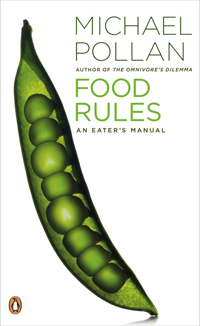 Pollan: I did have a chemistry set, and I was always trying to make things that would blow up, without much success. I was interested in chemistry, but I think I was even more interested in nature and being outside. I was gardening from the time I was eight. I love gardening. And I spent a lot of time in the woods. We lived in a suburban subdivision, but it was on the edge of a forest that hadn’t been developed yet. So I had a lot of places I could wander unobserved and explore. And I love creepy, crawly things and had lots of pets, so I was outside a lot. Nature was really important to me, even though it was a suburban life. It was an early subdivision in a part of Long Island that was still forests and fields. And there were farm fields near us, and I would spend time walking through these farm fields. The obsessiveness—yeah, I don’t know where that comes from. But I notice in all my siblings a certain level of obsessiveness.
Pollan: I did have a chemistry set, and I was always trying to make things that would blow up, without much success. I was interested in chemistry, but I think I was even more interested in nature and being outside. I was gardening from the time I was eight. I love gardening. And I spent a lot of time in the woods. We lived in a suburban subdivision, but it was on the edge of a forest that hadn’t been developed yet. So I had a lot of places I could wander unobserved and explore. And I love creepy, crawly things and had lots of pets, so I was outside a lot. Nature was really important to me, even though it was a suburban life. It was an early subdivision in a part of Long Island that was still forests and fields. And there were farm fields near us, and I would spend time walking through these farm fields. The obsessiveness—yeah, I don’t know where that comes from. But I notice in all my siblings a certain level of obsessiveness.
Chapter 16: You’ve said that baking is one case where, until recently, the outsourcing of work to professionals––farmers, millers, bakers––has served humanity well. Do you see any hope for outsourcing and specialization in the current era of commercial food preparation?
Pollan: There are better and worse ways to prepare processed foods. As you said, bread used to be made in a way that the flour wasn’t ground completely white, there was still a whole lot of nutrition in it. It was a great convenience to people. You didn’t have to cook your own bread. I’m not arguing for a world where people are going to go back to complete self-sufficiency. Division of labor is a very powerful thing. And I think you’re seeing some food manufacturers listening to consumers who want to see simpler foods. And they’re trying to figure out, how can they make these processed foods with less than five ingredients, say, or with ingredients that are themselves all recognizable foods, and how can they be less dependent on food chemistry. It can take a lot of sophisticated science to make food simpler, too.
And now consumers are paying attention. You talk to retailers and ask, What do your consumers want? They say they want food with less ingredients, and they don’t want food with unrecognizable ingredients. Many of them don’t want GMOs in their food, and food manufacturers can figure that out. There are some food scientists doing really important work. There are some meat substitutes being developed now that are made from pretty simple stuff, and in fact use microbes, use fungi, to ferment vegetable substrates of various kinds. I had a mock mayonnaise that was a really good product. It was made from peas instead of eggs. There’s something to be said for that. Mayonnaise is a great example. I don’t make my own mayonnaise very often—I know how to do it—but if I’m making a sandwich for lunch, I’m going to use a jarred mayonnaise. I think I’m less of a zealot than some people might think.
Chapter 16: I live in a gentrified part of old Nashville. From the amount of beards I see, I know we have home brewers, bakers, and fermenters in our midst.
Pollan: I just gave a speech to the craft brewers’ association, and they had the most interesting facial hair I’ve ever seen.
Chapter 16: Right, but what we don’t have is a good grocery store with fresh produce and artisan offerings. Do you have any thoughts as to why an urban grocery store wouldn’t cater to reasonably wealthy customers willing to invest in eating locally? Or, alternately, is there a way to attract a grocery chain that would?
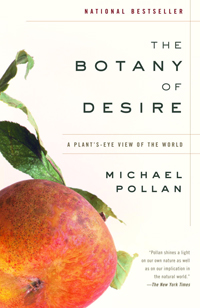 Pollan: Its customers are captive. I watched this happen. I lived in Manhattan for a long time, and the supermarkets there were awful. Everyone who had a car would drive out of town to buy food. But then little groceries like Fairway, stores that began little, and something called Gourmet Garage, recognized an opportunity and started selling really good food in these neighborhoods—in some sketchy neighborhoods, too, not just the Upper East Side or Upper West Side. And they forced the supermarkets to get better. The supermarkets were really lazy because they had a captive audience. But when the middle class moved into those areas and started not patronizing those places and going out of town to get food, better markets were drawn into the neighborhoods.
Pollan: Its customers are captive. I watched this happen. I lived in Manhattan for a long time, and the supermarkets there were awful. Everyone who had a car would drive out of town to buy food. But then little groceries like Fairway, stores that began little, and something called Gourmet Garage, recognized an opportunity and started selling really good food in these neighborhoods—in some sketchy neighborhoods, too, not just the Upper East Side or Upper West Side. And they forced the supermarkets to get better. The supermarkets were really lazy because they had a captive audience. But when the middle class moved into those areas and started not patronizing those places and going out of town to get food, better markets were drawn into the neighborhoods.
Every supermarket chain has their formula that they use to decide where they’re going to go. They’re looking for a certain number of people and a certain demographic group, a certain age. I don’t know that people have had luck attracting the kind of supermarket they want. I do know there are lots of underserved areas, and farmers’ markets can only take up part of the slack because they don’t fulfill all the needs that a supermarket can fulfill.
I think we’re going to see supermarkets gradually embracing the kind of food culture that you’re talking about, and they’ll get much better at localizing what they offer. You’ll find the local pickles and the local beer and the local bread. Retailers, they’re kind of like common carriers in media; they can make money selling anything; they’re not necessarily wedded to General Mills or Coca Cola or whomever. Whole Foods, for all their issues, they’re very open to local food craftsmen and women. I think the supermarket is going to become a much more interesting place. Hopefully you’ll get one of those.
Chapter 16: You’re advocating for competence and independence, which you point out are contrary to the aims of modern capitalism. Yet these traits are at the heart of traditional capitalist ideology. Might food preparation have the power to remake our financial systems in the same manner that it can remake our selves?
Pollan: What it has the power to do is make us less dependent on financial systems. To the extent that we can build an alternative economy, there will be a certain insulation. Look at what happened to community banks during the financial crisis. You have this handful of interesting banks that basically have as their mandate a social mission––we have one here in Oakland, and there’s a very interesting sustainable bank in the Netherlands. They give loans to sustainable businesses, in the case of this Dutch bank, so they get slightly lower rates of returns sometimes. But when a crisis hits they are unscathed, because they haven’t been playing around with credit default swaps and other volatile instruments.
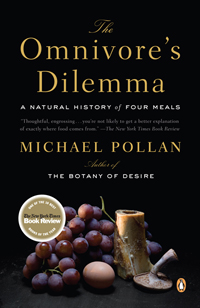 So the creation of local economic structures, including financing structures, can create a very important buffer between what’s going on nationally and globally in economics, which is really just out of our control—out of the government’s control, even out of the principal’s control to a large extent. Capitalism is not one thing. There’s capitalism at the local level, and then there’s global finance. So I do think it’s important and not to be minimized. The lessons come from agriculture. When you have a monoculture system, it’s very brittle, and there’s a virtue in diversifying, economically, culturally, and biologically. The food movement is about that diversification. It might not take over—probably won’t take over—but it will create some alternative structures that may turn out to be more resilient. At any rate, we just shouldn’t put all our eggs in one basket.
So the creation of local economic structures, including financing structures, can create a very important buffer between what’s going on nationally and globally in economics, which is really just out of our control—out of the government’s control, even out of the principal’s control to a large extent. Capitalism is not one thing. There’s capitalism at the local level, and then there’s global finance. So I do think it’s important and not to be minimized. The lessons come from agriculture. When you have a monoculture system, it’s very brittle, and there’s a virtue in diversifying, economically, culturally, and biologically. The food movement is about that diversification. It might not take over—probably won’t take over—but it will create some alternative structures that may turn out to be more resilient. At any rate, we just shouldn’t put all our eggs in one basket.
Chapter 16: Regarding the microbial aspect of pickling and bread making, you’ve said that we succeed to the extent that we manage to align our interests with theirs. That sounds like any relationship. You’ve written extensively about how your cooking experiments enhance life with your family; has the give-and-take of cooking with yeast and fermentation enhanced your relationship with your readers also?
Pollan: When I wrote about aligning your interests, that’s something I’ve written about, too, in the context of growing plants. [See The Botany of Desire, 2001.] Having a more engaged and aligned relationship with other species that we’re dependent on is important on many scales, on the microbial and the farm scale and no doubt on the social scale, too. My writing is very much influenced by my readers. I get out and speak a lot. I get a lot of questions, and I listen to people, and I have some sense of where they are at any given time and what confuses them, what troubles them, what they want to read. So the writing is in a dialectical process with the audience—certainly the food writing is. I’m often out there trying to answer questions that readers have, and they tend to answer my questions, too. So, yeah, I really value my relationship with my readers; it’s a very collaborative relationship. Sometimes it’s contentious. I have some readers who disagree with me fiercely.
Through the course of my work I’ve come to see that this movement is really important and has a lot to offer people, and you can enter in at many different levels. Some people are policy heads and they want to get involved at the national level in campaigns, and others want to get involved in making good food and feeding people. Some people want to get better access to food for poor people. It’s a many-headed thing, and I’m always trying to show people that you can get involved at this intimate level—the personal is, after all, political—or you can get involved at the global level and fight battles. I’m trying to do that alignment on a lot of different levels.

